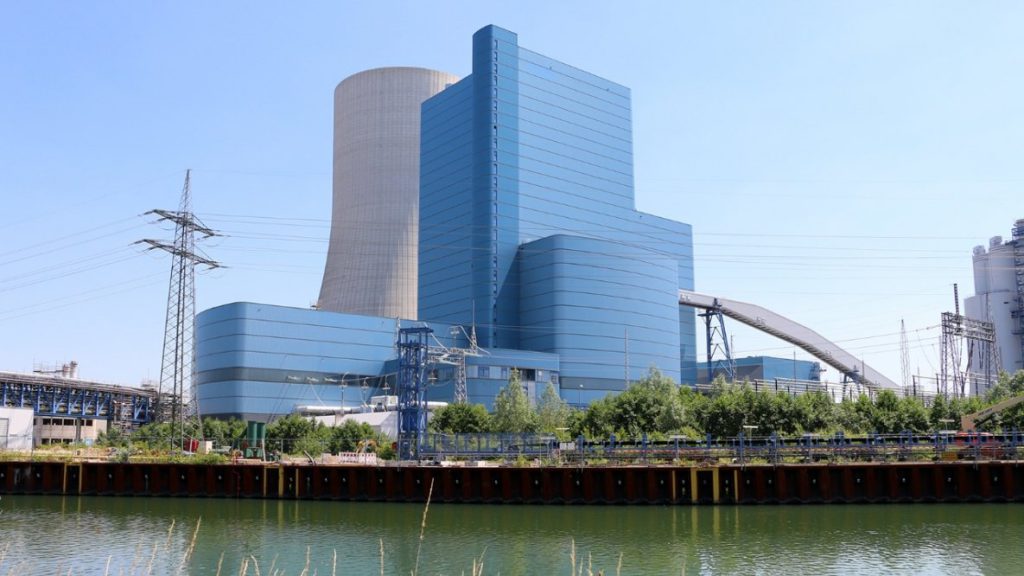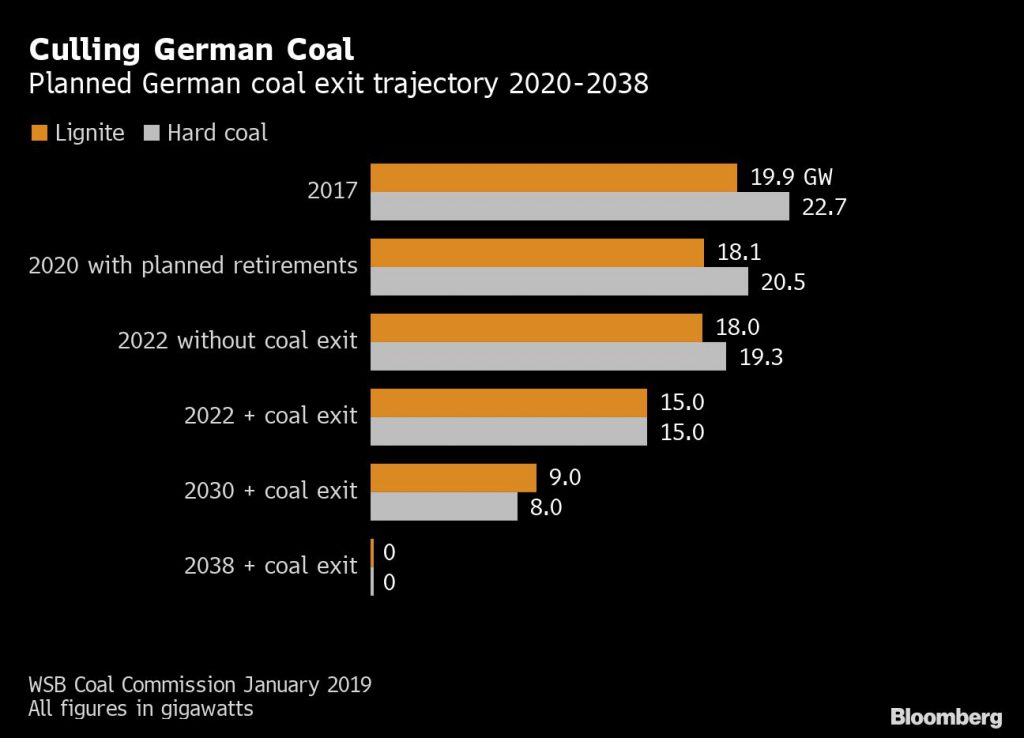Controversial German coal-fired power plant to start this week

Germany’s latest coal plant will enter service this week, angering environmentalists who say it threatens to derail the country’s attempts to slash carbon dioxide emissions.
Uniper’s Datteln-4 will start feeding electricity into the grid on a commercial basis on Saturday, a spokesman for the utility confirmed by email. The 1.5-billion euro ($1.3 billion) facility is already nine years late and over budget because of defects that delayed its connection to the grid.
The plant is the latest flash point in a fractious debate over Germany’s exit from coal, a fuel that still provides about half the country’s electricity. German Chancellor Angela Merkel last year brokered a deal to wean Europe’s biggest economy off coal by 2038, an agreement that allowed Datteln-4 to open.
The 1.5-billion euro ($1.3 billion) facility is already nine years late and over budget because of defects that delayed its connection to the grid
Environmental protesters have said they’ll target the plant and demand the government close it, underscoring the challenge facing fossil fuel operators in increasingly environmentalist Germany. The utility has said the plant will provide a significant revenue stream once it’s operational.
“If Datteln-4 enters service on Saturday, we will take it off the grid,” prominent German anti-coal protester Kathrin Henneberger wrote on Twitter, adding she was planning to attend a protest at the site this weekend.
Uniper’s Chief Executive Officer Andreas Schierenbeck has said the utility expects Datteln-4 to run close to the final 2038 exit date. The utility previously said it will close its older, less efficient coal plants by 2025, reducing the firm’s overall carbon dioxide emissions even as Datteln-4 runs to the deadline.
Disquiet over the plant may stoke a headache for the state-controlled utility Fortum Oyj in Finland, Uniper’s majority shareholder and an increasing target for German anti-coal activists. The plant is highly likely to be Germany’s last new coal plant. Uniper and other utilities are instead turning their focus on natural gas and low carbon technologies.

(By William Wilkes and Brian Parkin)
More News
{{ commodity.name }}
{{ post.title }}
{{ post.date }}




Comments